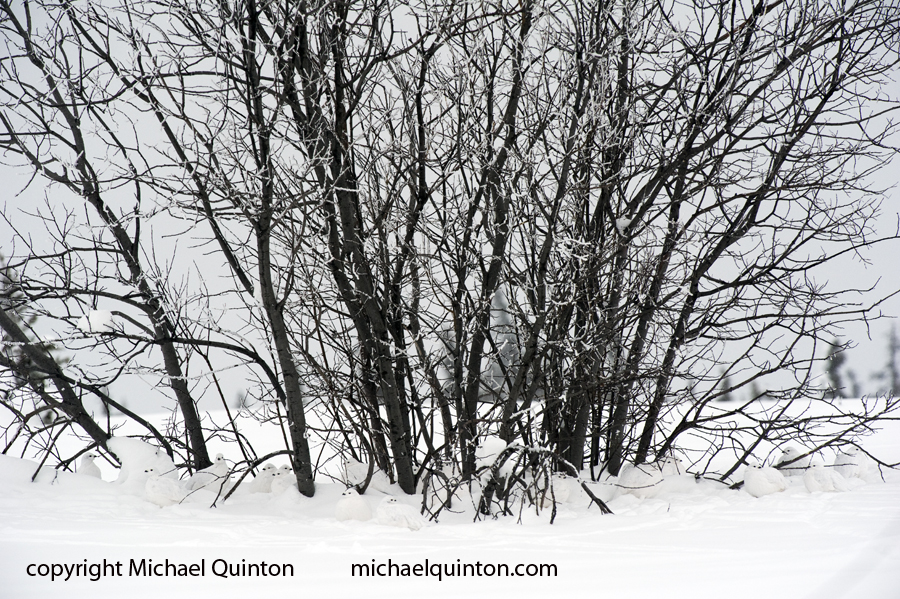 A group of willow ptarmigan huddle beneath a willow in Alaska.
A group of willow ptarmigan huddle beneath a willow in Alaska.
It seems hiding in plain sight would be risky business in our hostile and unforgiving world. But few strategies for survival are as effective as camouflage. Countless species of wildlife including birds, mammals, reptiles, fish, insects have adapted diverse methods of camouflage for offense as well as defense.
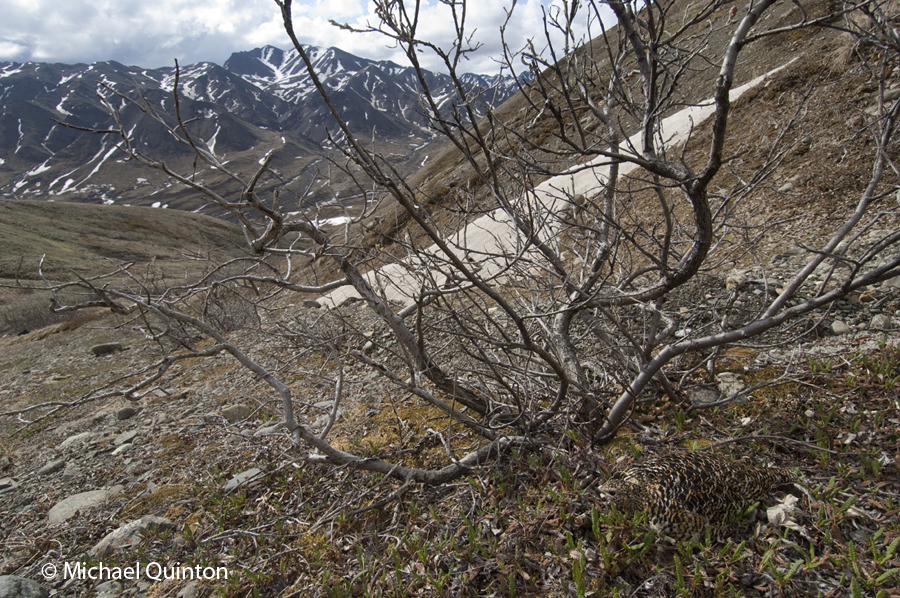 Relying on its amazing camouflage, a female rock ptarmigan incubates its eggs on the Alaskan tundra.
Relying on its amazing camouflage, a female rock ptarmigan incubates its eggs on the Alaskan tundra.
When photographing wildlife you want your subject to stand out in your picture, to attract attention. But not always, sometimes you can increase the impact of your photograph if the viewer has to work a little. This is especially true for dramatic examples of wildlife that are using camouflage for their survival, for them it’s a matter of life and death.
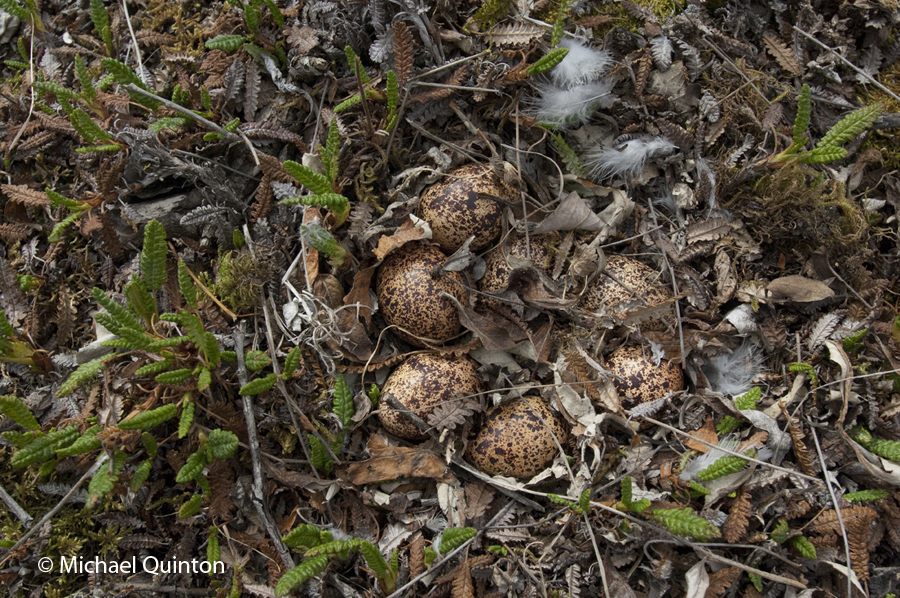 As the female rock ptarmigan leaves the nest several times per day to feed and court the nearby males that vie for her attention, she carefully covers her eggs with dry leaves.
As the female rock ptarmigan leaves the nest several times per day to feed and court the nearby males that vie for her attention, she carefully covers her eggs with dry leaves.
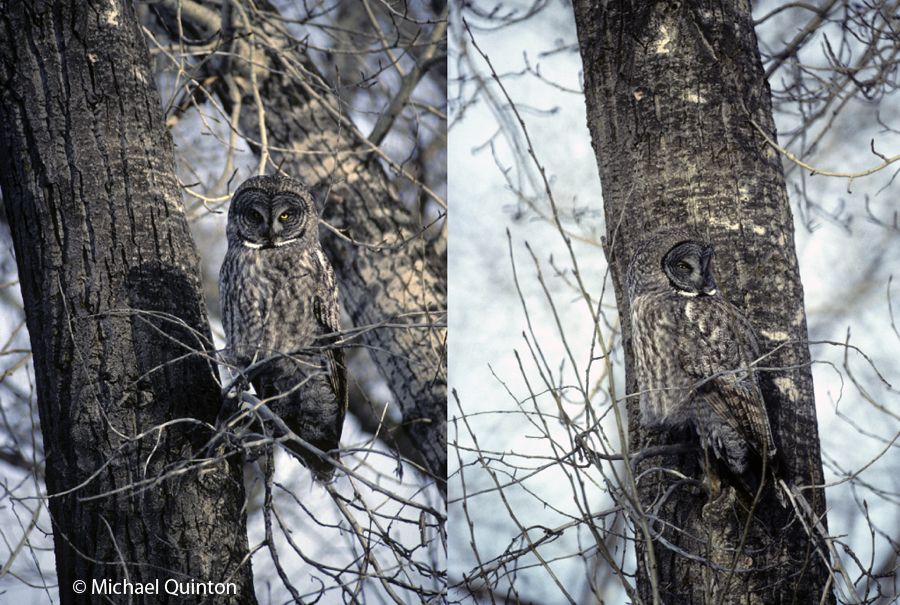 If possible check out several different angles when these rare opportunities present themselves. By moving a few yards and photographing the perching great gray owl from a different position. I was able to get a better photograph of the owls awesome camouflage.
If possible check out several different angles when these rare opportunities present themselves. By moving a few yards and photographing the perching great gray owl from a different position. I was able to get a better photograph of the owls awesome camouflage.
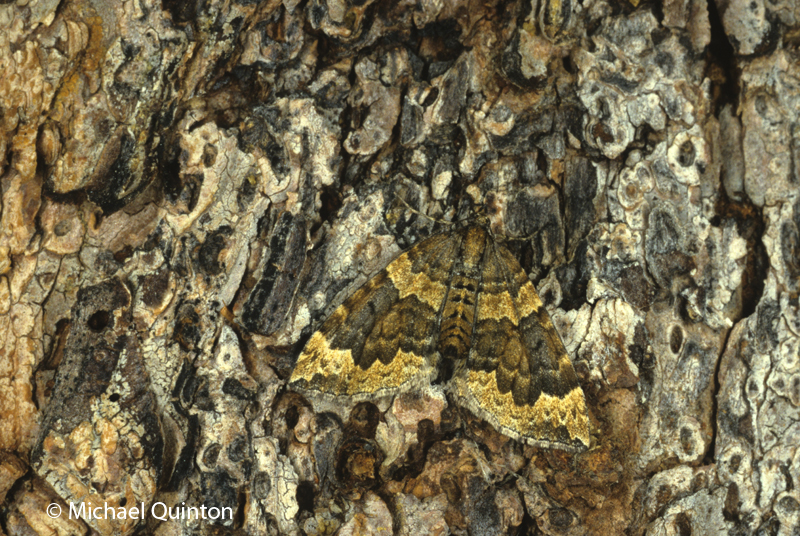 Moth (geometrid Eulithis destnata) on black spruce bark. Thank you Derek Sikes and Clifford D Ferris for help in identification.
Moth (geometrid Eulithis destnata) on black spruce bark. Thank you Derek Sikes and Clifford D Ferris for help in identification.
